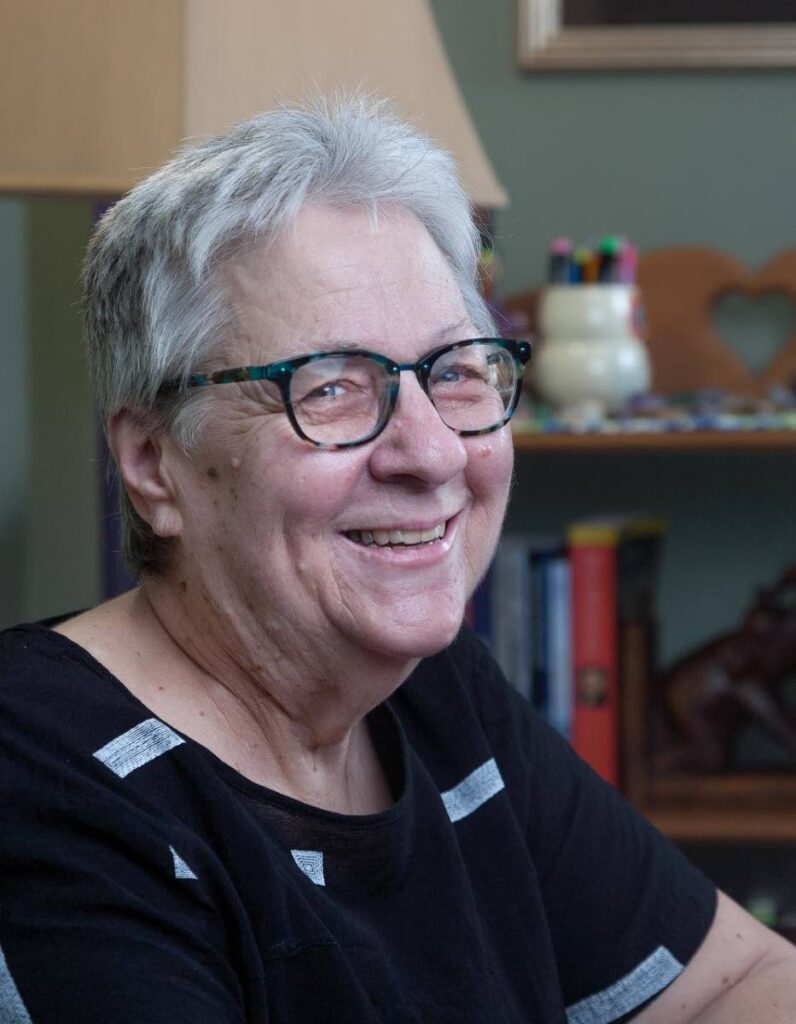It’s hard to say goodbye

Debbie Jacob
ONE DAY in 1988, I walked out of the Trinidad Express office on Independence Square to go on an assignment and saw our new colleague BC Pires. Standing there with his back against the wall and smoking a cigarette, he looked deep in thought. I walked over to him and said how much I admired what he was doing.
I wasn’t just talking about his writing which felt refreshing and different because of its humour and disregard for the conventions of journalism. I was talking about the bold decision he took to become a journalist. I said he provided a much-needed balance to the stark and serious writing that most journalists offered.
BC’s humorous writing voice made many seasoned journalists bristle. He faced push back from those who believed journalism must be serious. His columns and features, most notably Thank God It’s Friday and later Trini to the Bone, reminded us of the lesson the late, great editor-in-chief Owen Baptiste always taught us: Journalism is about people – not events. BC’s work proved that the best journalism is literature too.
He knew that humour had always been our most effective weapon. It conveyed his chosen message to readers without making them feel defensive. Humour in journalism is as difficult to write as humour in calypso. We lose sight of that because BC made it feel effortless.
We will always remember BC’s last columns, a chronicle of his battle with cancer of the oesophagus. They are a testimony to his brave, humble and humorous nature, qualities that defined him from the time he became a journalist.
A few years ago, BC reminded me of that conversation we had on Independence Square in front of the Express. He thanked me for being supportive. He said he never forgot that conversation. He had been wondering if he had made the right decision to choose journalism over law.
No one did that. It could work the other way around. Journalists like Justice Kathy Ann Waterman-Latchoo and Fulton Wilson became lawyers, but who studied law to forego a lucrative and prestigious career to be a struggling journalist? Society has always dictated four main career choices: lawyer, doctor, businessman and engineer. Even today it takes a brave and confident person to fight against that mindset.
In 2020, BC chose me as the person of the year for his Trini to the Bone feature. It was an unexpected honour. He approached me with an enthusiastic sales pitch, though I would not have turned him down. The interview was light, entertaining and revealing. It made me re-evaluate who I am on a deeper level, and realise how my personality and background shaped my work.
I often speak about growing up on a remote dairy farm in Ohio, but BC made me remember sitting on a knoll next to a lilac bush and watching the road for weeks at a time before I would see a stranger’s car.
When I read that, I knew my biggest accomplishments weren’t what I did, but the patience I had developed to tough out the hard times. That interview gave me a visual reference for how my childhood had nurtured patience and the ability to thrive in isolation. The story celebrated what was ordinary in me. That which is ordinary is an important characteristic in all of us, much overlooked and underappreciated but captured admirably well in a BC Pires interview.
It has been hard for anyone who knew BC Pires to say goodbye. He was kind, supportive and creative beyond measure. Part of his legacy must be his lesson to pursue the career that makes you most happy and give it your own personal stamp. Stay the course in spite of the opposition. Seek positive and uplifting stories – and people – in your life.
The love and respect journalists had for BC have been evident in the number of stories written about him since his death on October 21. Collectively, I hope they convey his immeasurable contribution to this country and region.
Several times a day I remember a conversation I had with BC about 30 years ago. He said as a child he had lived in the house I had bought.
“I wonder if the hall still looks as endless as it did when I rode my tricycle up and down?” he asked.
Now, I look down that hall that runs past my kitchen and hear BC’s voice: “Does the distance feel long or short? Does it seem endless to you?”
His questions capture the essence of BC’s writing. It was always about perspective.


Comments
"It’s hard to say goodbye"